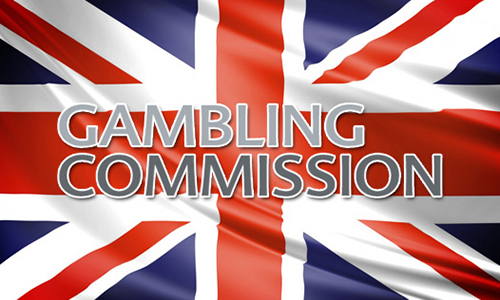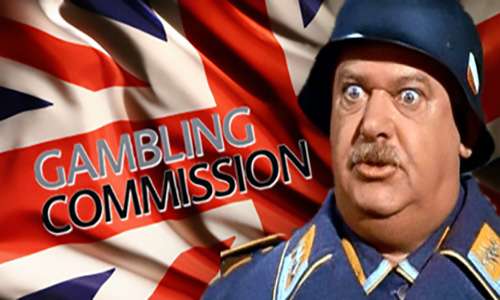FOBT Maximum-Wager Cutback Headlines UKGC Recommendations
On Monday, March 29th, the United Kingdom Gambling Commission (UKGC) released its long-anticipated recommendations regarding consumer protection and the future of betting-shop and online gambling offerings in the UK. At the top of the list, amid the furor over addictive gambling behavior associated with fixed-odds betting terminals (FOBTs), is the recommendation that the maximum wager on the terminals be cut back from £100 to somewhere under £30.
It’s a multi-part reduction being proposed by the Gambling Commission, however. FOBTs fall into the UK’s definition of Class B2 gaming devices, and the games offered on such devices range from popular slot-machine titles to bingo, keno, blackjack, video poker and more. For the slots-based category of B2 devices, the UKGC is recommending a far more restrictive cap, all the way down to £2 per wager.
 There’s far more to the UKGC’s recommendations, which came in the form of a 97-page paper titled, “Review of gaming machines and social responsibility measures – formal advice”. The advice goes on to the UK’s Department for Digital, Culture, Media and Sport (DCMS), which will incorporate it into that agency’s own recommendations. It was the DCMS, the UK’s primary consumer-protection agency that has been considering four different cutback levels for that maximum-wager standard. Among those options: a “most severe” cutback that would have seen the £2 max extended across all formats of B2 gaming devices.
There’s far more to the UKGC’s recommendations, which came in the form of a 97-page paper titled, “Review of gaming machines and social responsibility measures – formal advice”. The advice goes on to the UK’s Department for Digital, Culture, Media and Sport (DCMS), which will incorporate it into that agency’s own recommendations. It was the DCMS, the UK’s primary consumer-protection agency that has been considering four different cutback levels for that maximum-wager standard. Among those options: a “most severe” cutback that would have seen the £2 max extended across all formats of B2 gaming devices.
The slots-based devices have been linked to numerous high-profile, addictive-gambling stories in the United Kingdom in recent years. More so than with other forms of gaming devices or other gambling activities (though not exclusively), the slots-FOBT abuse has accompanied tales of theft and embezzlement, with the UKGC often forced to take long-arm steps to restore stolen and gambled funds to their initial owners. That in turn has led to a public outcry against gambling in general but against FOBTs in particular, spurring the governmental reviews.
Here’s part of what the UKGC offered on Monday:
In forming a judgement, we think it is worth distinguishing between the different types of games that are available on B2 machines – slots games, which are like traditional fruit machine games, and other games, which include roulette (by far the most popular game on B2 machines).
We think that there is a case for a £2 maximum stake for B2 slots, which was one of the options on which DCMS consulted. Drawing on data from 20 billion plays on B2 machines, we have looked at consumer losses as an indicator of the risk of gambling-related harm. Our analysis shows that, compared with non-slots players, slots players experience a greater proportion of significant losses. This reflects the particular risks associated with slots, which offer a lower return than non-slots games and less opportunity for players to manage their own risks through the way they play. In our view, the risks associated with this product outweigh the other factors […].
For all other B2 games, we agree with RGSB that there is a precautionary case for a stake cut below £50, which is now the effective limit for most players, and we think the maximum stake should be materially lower than £50. In our view, a precautionary approach should involve a stake limit at or below £30 if it is to have a significant effect on the potential for players to lose large amounts of money in a short space of time. The chosen level will depend on the weight that Ministers attach to risk of harm, implications for the way different products are regulated, consumer choice, and public and stakeholder opinion.
However, we do not consider that a stake cut alone on B2s (irrespective of the level) would go far enough to address the risk of harm fully. We consider that it is necessary to recommend a package of measures to address harm. This package would not just address the risk of financial harm from B2 machines. It would also minimise the risk of diverting problematic play onto other machines or other forms of gambling, and would help to identify the range of indicators of problem gambling at a much earlier stage.
The UK’s gambling industry is treating it as a split decision, being thankful that the £2 cap isn’t being recommended by the UKGC across all FOBT devices. As the UKGC executive director, Tim Miller, said, “We’re aiming to reduce the risks that people face from these forms of gambling. A stake cut is an important part of our comprehensive package that is recommended to government that will tackle the risks consumers face, but our research has shown that a stake cut alone will not do enough.”
Added Miller, “If the government wants to go lower than a £30 maximum stake that will be perfectly consistent with our advice, as we are recommending a maximum stake of £30 or less.”
The UKGC also included as one of its primary recommendations that new rules should be put into place that will make the maximum-wager cutbacks more effective. Those include a ban on being able to switch from one type of game to another, and possible ban on different types of games being allowed within a single venue, and an increase in the amount of time that must elapse before each successive bet can be placed.
Consumer Protection Concerns Extend Into Online Sphere
While the public outcry and the Gambling Commissions were centered on the FOBT controversy, the reach of the recommendations goes far afield from there. Online and mobile gaming operations in the UK have also been targeted for numerous consumer-protection violations spanning the entire range of services offered to British gamblers.
Most of what’s coming from the UKGC regarding online gambling and consume protections will be addressed in another report, to be released in the near future, but taste of what’s to come was included in Monday’s treatise.
According to the UKGC report:
We also note stakeholder concerns about the risks of gambling online. We have submitted alongside this advice a review of data, market trends, consumer participation and action by operators on social responsibility and crime in online gambling. From this, we have identified a number of areas where we want to improve the protections in place for consumers. We will consult on:
- strengthening protections to prevent underage gambling
- ensuring that more robust customer due diligence occurs earlier in a consumer’s relationship with a gambling operator, with default limits to protect consumers until operators know more about them
- new requirements around customer interaction.
We will also publish guidance on unfair terms, and provide more information to consumers about the treatment they should expect to receive to help embed the outcomes of the CMA’s work on unfair terms.
ABB Offers Early Industry Feedback
The Association of British Bookmakers (ABB), which represents many of the firms that will be impacted by the UKGC’s recommendations, offered this take:
“The ABB is now considering the extensive and wide-ranging advice and recommendations made by the Gambling Commission. We fully understand that there is public concern and that there will be a stake cut to reduce the levels of losses on machines in betting shops.
The Commission has also identified a number of responsible gambling measures that will benefit those experiencing problems with their gambling. The final decision is still to be taken and we await the outcome of the consultation. In the interim, we remain committed to introducing further measures to address problem gambling and will continue to work with all interested parties.”




















COMMENTS